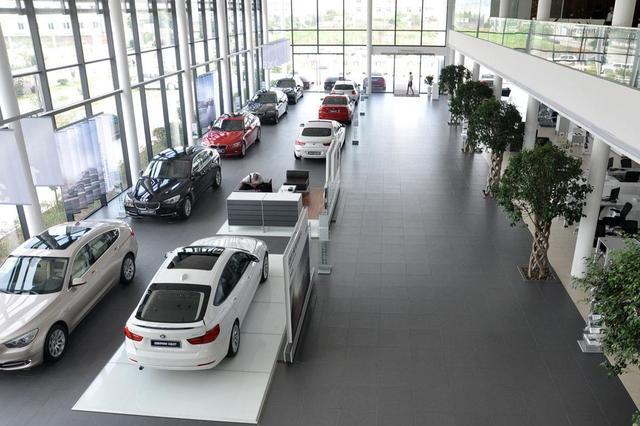In January 2022, the BMW Group officially announced last year's sales report card: the total number of global cumulative deliveries was 2,521,525 units, an increase of 8.4% year-on-year. Among them, the MINI brand 302144 units, an increase of 3.3% year-on-year; the Rolls-Royce brand set a record for the highest delivery in the 117 years since its inception, up 48.7% year-on-year to 5586 units.
The BMW brand also hit a record high, with global sales up 9.1% y/y to 2213795 units. For the first time since 2015, it surpassed Mercedes-Benz (2093476 units, down 5% year-on-year) to win the luxury car sales championship. In the Chinese market, BMW has been the champion for the third consecutive year, delivering 846,200 units (including MINI) in 2021, an increase of 8.9% year-on-year. In other words, one out of every three cars is delivered to a Chinese customer.

Public information shows that BMW was founded in 1916, has a history of hundreds of years, and is headquartered in Munich, Germany. At present, it has 31 production and assembly plants in 15 countries, and its sales network covers more than 140 countries and regions.
BMW started out as an aircraft engine manufacturer, and the blue-and-white motif in the middle of the logo represents blue skies, white clouds and spinning propellers. Founder Gistan Otto developed a new aero engine based on the four-stroke internal combustion engine invented by his father, which is much more effective than the traditional engine. In order to promote the product, he opened a special aircraft engine manufacturing plant. Later, he founded the BFW (Bavarian Aircraft Factory) with Jack Sabonu, one of the shareholders of Daimler-Benz.
In the 1920s, BMW transformed into the production of power-assisted bicycles and motorcycles, and developed motorcycle engines, and in 1928, it took over the Eisenach Automobile Manufacturing Company and began to embark on the road of car manufacturing. Four years later, the BMW 3/20, the first model with a four-cylinder engine designed entirely in-house, was officially born. This was followed by the unveiling of the BMW 303 with a six-cylinder engine. This is a representative model, which for the first time adopts the classic element "double kidney" shaped grille that has been passed down to this day. On this basis, 326, 327, 335 and so on were successively introduced.
Stephen Quandt, Suzanne Kraten and her mother (center)
In the 1960s, under the operation of the third generation of heirs Herbert Quandt, the Quandt family successfully acquired BMW. The company has thus entered a new stage of development, successively launching a number of classics, including BMW 1500, BMW 7 Series, BMW xDrive, BMW X5 and so on.
Like the Toyota family in Japan, the Quandt family originated in the textile industry and obtained huge commercial resources through marriage. The family has been passed down for more than 170 years, and the fourth generation of heirs, Suzanne Kraten and Stephen Quandt, are sitting on huge fortunes. According to the "2021 Hurun Global Rich List", the two people's homes are 123 billion yuan and 110 billion yuan respectively.
Since entering the Chinese market in 1994, BMW's business in China has been growing steadily. Up to now, it has more than 6 million car owners, about 25,000 employees, more than 600 dealer outlets, and more than 460 local suppliers to establish cooperative relations. Since 2010, they have invested more than 73 billion yuan in the Shenyang production base, making it the group's largest production base in the world.
At the end of last year, the BMW Group upgraded its China strategy with the theme of "Home in China" and will give priority to the needs of the Chinese market in the development of new products. This year they plan to launch 26 new products (including 7 new energy models) covering BMW's main brand, BMW i and BMW M, MINI and motorcycle segments.
Nowadays, new energy has become the trend of the times. BMW's pure electric vehicles sold more than 48,000 units in the Chinese market last year, an increase of 69.6% year-on-year, and the pure electric BMW iX3 delivered more than 21,000 units. This achievement is far less than the Volkswagen ID. family (70625 units) and Xiaopeng (98155 vehicles), Weilai (91429 units), Ideal (90491 units) and other new car-making forces, and even less than Tesla China's December delivery volume (70847 vehicles).
OLIVER Zipse, chairman of the BMW Group, has publicly stated: "As competitors continue to deepen in the field of electric vehicles, Tesla may have difficulty maintaining rapid growth." "But at present, the counterattack of traditional car companies has not delayed the development momentum of new car-making forces, and the competition in the industry will become increasingly fierce in the next few years.